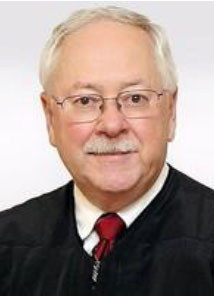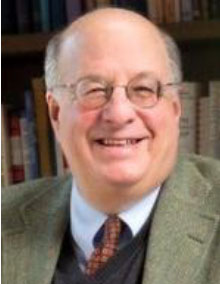Criminal Law
Views From The Bench On Sentencing Representation: Part 8
This article is republished with permission from Law360

By Alan Ellis
What can you do if faced with the government argument that a lesser sentence for your client would depreciate the seriousness of the offense and promote disrespect for the law? As one judge once told me, “Tell me something that your client did when no one was keeping score.” In my recent interviews with Judge James C. Mahan of the U.S. District Court for the District of Nevada, Judge Mark L. Wolf of the U.S. District Court for the District of Massachusetts in Boston and Chief Judge Jerome B. Simandle of the U.S. District Court for the District of New Jersey in Camden, they all agreed: Demonstrate that your client is essentially a good person and rehabilitatable.
Judge Mahan is not particularly interested in this general deterrence argument.
“I’m focused on this guy in front of me,” he says. “What do we do with him?” Judge Simandle points out that the lawyer should remember that “I am sentencing the individual.” Judge Wolf cautions that a defendant’s good deeds do not include giving money to charities that he would not have been able to assist generally except for the crime he committed.
Sentencing Memorandum

A lawyer’s sentencing memorandum is very important to Judge Simandle. It’s a lawyer’s first opportunity to make a good impression with him. “Don’t waste your time with the first five pages using boilerplate citations,” he advises. “Put the important stuff in these first five pages. Don’t make it too long. I read every word. Don’t submit a sentencing memorandum late or out of time. Don’t submit character letters that lack credibility.” Judge Simandle says that it’s a good idea to quote from the better letters and attach them as Exhibit A, with the rest of the letters as Exhibit B, leaving out the ones that are worthless or counterproductive. While he allows a few live witnesses, he says, “Less is more.” He may ask the witness, “Have you spoken to the defendant about his crime?”
Judge Simandle recommends that lawyers develop a theme, a theory of the sentencing: why the defendant did what he did, why he’s a good human being at heart, why he’s rehabilitatable, why he’s unlikely to do it again, and why he has earned a break. Judge Mahan comes to the bench, as do most judges, with an inclination as to what sentence he is going to impose. He has already discussed the case with his “brain trust” — his law clerks, who have reviewed the presentence report and any sentencing memoranda. Thus, it is important that a lawyer present all of his arguments, including a well-crafted sentencing recommendation, in the sentencing memorandum.

Judge Wolf requires a sentencing memorandum to be filed two weeks prior to sentencing and replies one week thereafter. “The best lawyers take advantage of this opportunity to educate me in advance about the case,” he declares.
He does not want boilerplate citations, but does welcome legal arguments on disputed guideline issues. Judge Wolf, like so many of the judges I’ve interviewed, says, “Tell me something I don’t already know about your client.”
Judge Wolf is interested in character letters that demonstrate the defendant’s good deeds and other qualities that are not apparent in the presentence report. He appreciates letters that use common language and are not based on a lawyer’s template about what to say. Like Judge Simandle, Judge Wolf finds it helpful if the sentencing memorandum quotes from the best letters, and prefers lawyers to attach those letters as Exhibit A and the remainder as Exhibit B.
All three judges emphasized credibility, reminding lawyers not to sugarcoat their clients and to tell the judges the client’s strengths and weaknesses.
Lawyers Can’t Do All That Much at the Sentencing Hearing
Asked what a lawyer can do in court if she or he has presented a good sentencing memorandum, Judge Simandle responded, “Hit the high points and reemphasize them. Begin with the guidelines, which are the starting point. Be prepared to respond to the government’s argument.”
Judge Mahan notes that “a lawyer can’t do much at the sentencing hearing to add to what they have already presented.” While he wants to hear what steps the defendant has taken to show that he is unlikely to reoffend, this information should also be in the sentencing memorandum.
Allocution
Although the lawyer can’t add much at the hearing, the defendant can. Allocution is important to Judge Mahan who wants to hear what the defendant has done to clean up his act.

Allocution is equally important to Judge Wolf, who says, “I sometimes give a lower sentence based on allocution. I am sentencing the defendant, not the lawyer. I want to understand the person that I am sentencing. From the lawyers, I am particularly interested in information that is not in the presentence report.”
Judge Simandle says that he won’t hold it against an individual who is inarticulate or so nervous that he can’t allocute well. “On the other hand,” he cautions, “a sociopath can give a very good speech that is often insincere. I am looking for sincerity.”
Judges Welcome Sentencing Recommendations
All three judges welcome sentencing recommendations if they are well crafted, present a program for rehabilitation and are not unreasonably low. Judge Mahan asks, “What do we do with this guy? Does he need drug and alcohol and/or mental health treatment? Give me a plan. Tailor it to this defendant.”
Unwarranted Disparity
State court sentences can be important to Judge Wolf, who also was once a state court judge. He gives as an example a low-level drug case involving a relatively small amount of drugs and a case involving large amounts but in which the defendant had a relatively minor role. If the case normally could have been prosecuted in state court, an argument as to what the state sentence would be can be useful.
Judge Wolf says he’s not often swayed by a sentence imposed by other U.S. district court judges in Massachusetts, because he doesn’t have that defendant’s presentence report in front of him to know what unique characteristics that individual may possess. Likewise, Judge Mahan doesn’t want a lawyer to argue that another judge has sentenced a similar defendant to Y months because “I don’t know the facts of that case.”
By contrast, Judge Simandle welcomes Sentencing Commission data as to what sentences have generally been imposed in New Jersey, the Third Circuit and nationwide. The sentencing situations of co-defendants in the same case should also be mentioned when known.
Mental Health and Substance Abuse Professionals
Judge Simandle shared that he thinks highly of mental health professionals who have evaluated the defendant, particularly those professionals who are used by both sides. If such an expert is supportive of the defendant, it can carry considerable weight with him. “I respect psychology and criminology,” he says. His opinion is that an expert who has been used by the government and who has credibility is often better than one who solely aids the defense.
Other Considerations
Judge Mahan takes a broader view of aberrant behavior than what the guidelines might define. If a defendant has committed a one-time offense in a marked departure from an otherwise law-abiding life, Judge Mahan wants to know about it. “Show me a compelling reason why the defendant did what he did,” he says. He is interested in a defendant who has a low likelihood of recidivism.
What can a lawyer do when he represents the “challenging defendant” — a client who has committed a heinous offense and who has a serious prior record? Judge Wolf finds it advantageous in such a case if the defendant promptly admits the offense and makes restitution to the victims. He says that ordinarily he does not find family needs to be persuasive, because such adverse impacts are common when someone commits a crime. An exception would be considered in unusual circumstance, such as the defendant is a sole provider and caretaker for a special needs child.
Judge Simandle gives civil collateral consequences importance unless they are related to the commission of the offense. For example, a lawyer who embezzles funds from his client trust account and is going to lose his license as a result, doesn’t carry much weight with him. On the other hand, a lawyer who has committed a crime unrelated to the practice of law and will lose his license may receive some consideration.
Such collateral civil consequences do not carry much weight with Judge Wolf, who maintains that “oftentimes these are self-inflicted wounds, which generally impact privileged defendants who had a choice in doing what they did.” Judge Wolf emphasizes that he is concerned with “rich man’s justice versus poor man’s justice” when he sentences highly disadvantaged individuals as opposed to those who come from a privileged background.
Nor is restitution of great importance to Judge Wolf, particularly if a wealthy family is paying it. “It doesn’t tell me anything about the defendant,” he says. However, serious mental health issues can be important to Judge Wolf. Despite the the Bureau of Prisons’ protestations to the contrary, he is concerned that they cannot always adequately care for a defendant who has a unique serious medical problem. “This is something that I wrestle with,” he says candidly.
A defendant who has been detained and who helps other inmates is someone who makes a good impression on Judge Simandle, particularly if the activities are documented by certificates or comments from jail staff. “Defendants who make the best of a bad situation are important to me,” he avows, adding that he takes very seriously what a defendant has done while on pretrial release if he or she is not detained. For instance, if a defendant has made serious efforts at rehabilitation, such as dealing with a mental health or substance abuse problem, this is important. “If Pretrial Services has required a defendant to take certain steps towards rehabilitation, I want to know if he has followed through on this. I believe in redemption and reward extraordinary efforts at rehabilitation.”
Conclusion
The key message that I hear over and over from judges is, “Don’t sugarcoat your client. Tell me his strengths and the weaknesses. Tell me his story. Humanize your client.”
Also, virtually every judge I’ve interviewed welcomes well-crafted sentencing recommendations provided sound reasons for them are given. For example, recommending a carefully planned treatment program for a defendant who suffers from a mental disorder or substance abuse can help the judge to structure a sentence that includes supervised release with specific proposed programming for rehabilitation. Judges care about what a defendant has done to clean up his act. An effective lawyer recognizes a judge’s preferences and acts in concert with them.
Alan Ellis, a past president of the National Association of Criminal Defense Lawyers, is a criminal defense lawyer with offices in San Francisco and New York. He practices in the areas of federal sentencing and prison matters, and was awarded a Fulbright Senior Specialist Award by the U.S. State Department to conduct lectures in China on American criminal law in the fall of 2007.
The opinions expressed are those of the author(s) and do not necessarily reflect the views of the firm, its clients, or Portfolio Media Inc., or any of its or their respective affiliates. This article is for general information purposes and is not intended to be and should not be taken as legal advice.
